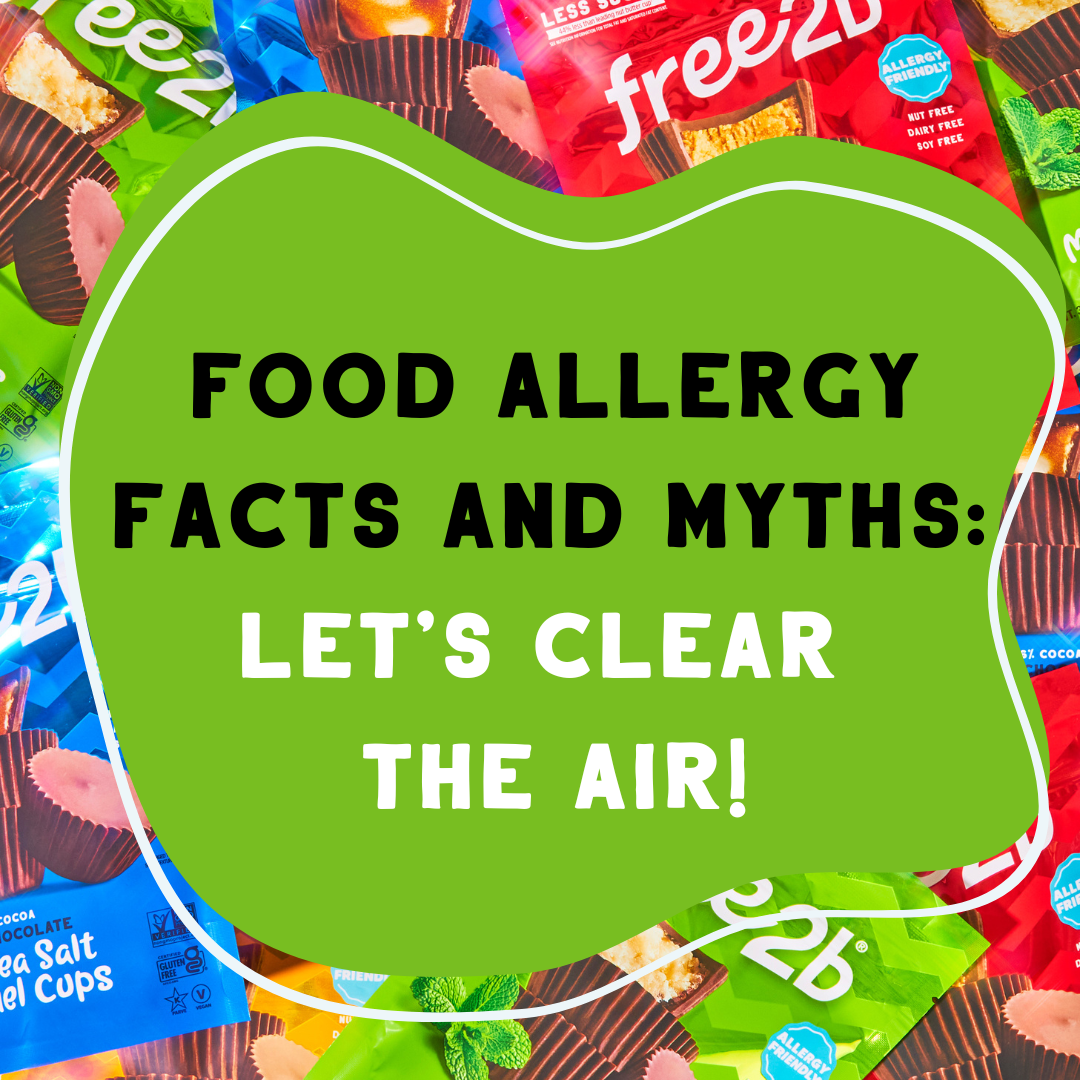

Food Allergy Facts and Myths: Let’s Clear the Air!
Food Allergy Myths & Facts
Navigating the world of food allergies can be like a rollercoaster ride, full of twists and turns. But don't worry, we're here to help you sort through the facts and bust some common myths. Whether you're a seasoned pro or new to the allergy scene, this guide will make everything a little clearer and a lot more manageable. Let's get started!
Myth: An Intolerance is the Same as a Food Allergy

Fact: Nope, not quite! Think of it this way: a food allergy is like your immune system getting all worked up over a harmless food, causing reactions that can range from mild to severe. On the other hand, a food intolerance is more like your digestive system throwing a tantrum. For example, lactose intolerance means your body isn't a fan of digesting lactose, but it doesn't involve your immune system. So, while both can make you feel crummy, they're not the same thing!
Myth: Gluten and Lactose Allergies Are Everywhere

Fact: Actually, gluten and lactose issues are more about intolerances than true allergies. Only about 1% of people have celiac disease, which is an autoimmune response to gluten (not an allergy!). And while many folks can't digest lactose well, it's not because of an immune response—it's a lack of the enzyme lactase. So, while these conditions are common, they aren't the same as food allergies.
The Rise of Food Allergies: What Gives?
It seems like food allergies are popping up everywhere, right? That's because they are! According to the amazing team at Food Allergy Research & Education (FARE), about 1 in 10 adults, and 1 in 13 children in the U.S. have some type of food allergy. Thanks to the incredible work they and others in the food allergy community are doing, more of us are learning how to navigate this allergy adventure with confidence and clarity.
The Serious Side of Food Allergies
Food allergies are not something to take lightly, especially when they can lead to anaphylaxis—a potentially life-threatening reaction. Symptoms of anaphylaxis can include difficulty breathing, loss of consciousness, and more. If you, or your child, ever encounter these symptoms, it's crucial to call 911 and get to the nearest emergency room immediately. It's always better to be safe and get the necessary medical attention.
Getting a Pro's Opinion
If you think your kiddo might have a food allergy, it's time to call in the pros. An allergist can help you figure out what's what with proper testing and advice. Plus, they'll equip you with all the tools you need, like epinephrine auto-injectors, just in case. Avoiding potential allergens is a good start, but a specialist can give you the full scoop.
Wrap-Up
So there you have it—some myth-busting and fact-sharing to help you on your journey. Remember, food allergies involve the immune system and can be serious. Stay informed, stay prepared, and don't hesitate to chat with a specialist.
For more friendly advice and resources, check out FARE, your go-to for all things food allergy.
